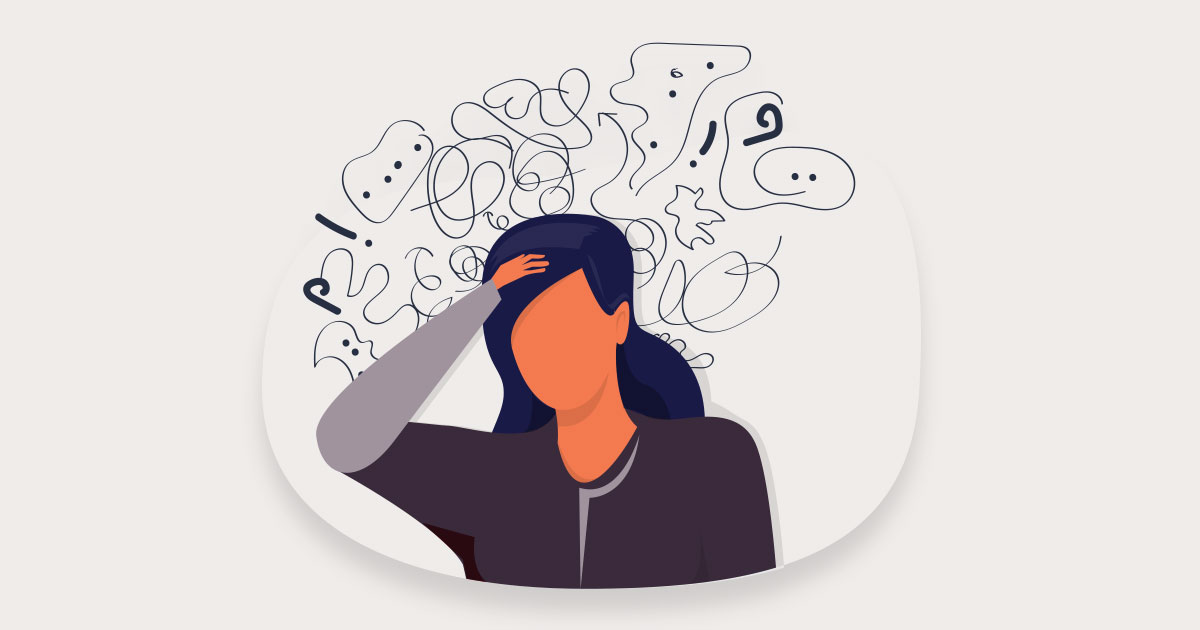Our understanding of ADHD has evolved over the years, especially as it relates to women. According to Dr. Shannon Drabek, a psychologist at Pine Rest's Psychological Consultation Center, ADHD was originally referred to as "hyperkinetic reaction of childhood," and it was not until around the 1960s that the American Psychiatric Association (APA) recognized it as a mental health condition. Diagnostically, ADD and ADHD have since been combined under the same umbrella, meaning ADHD presents itself in a number of ways.
"Gone are the days where we assume a 'one-size-fits-all' presentation for ADHD; there's much more nuance," Dr. Drabek said. "Our understanding of ADHD is consistently evolving. Our current understanding is that there are both environmental and genetic components related to an ADHD diagnosis."
Dr. Drabek explains that experts now know that when making a diagnosis, many overlaps exist in symptom presentation between ADHD and other disorders, such as anxiety.
"No longer are we just looking for externalizing behaviors and specific decline in academic performance," she said. "We know that individuals who may be high achieving academic students may greatly struggle with focus and attention, especially as related to their peers."
ADHD research, Dr. Drabek says, has been traditionally more heavily focused on biological males, undoubtedly leading to delays in diagnosis and referral bias. Today, however, more women are receiving ADHD diagnoses, a trend Dr. Drabek attributes to a deeper understanding of women's experiences by women themselves and their healthcare providers.
"Many women that come into my office not only didn't know they had ADHD growing up, but the possibility [of a diagnosis] was not offered to them," she said. "Women are amazing and are taking matters into their own hands, seeking referrals and testing by themselves as they're screaming from the rooftops: 'It's not just disruptive or impulsive behaviors that represent ADHD!' Women seem tired of suffering in silence."
According to Dr. Drabek, common ADHD symptoms in women are usually less obvious and can include: Trouble with sustained focus, namely on non-preferred activities; indecisiveness; overspending; forgetfulness; losing or misplacing items; restlessness; fidgeting; trouble with multitasking; procrastinating; trouble keeping environmental space orderly; lack of full task completion; hyper focus on areas of interest; conversational impulsivity; emotional dysregulation; trouble with time management; daydreaming; and comorbid anxiety and mood disorders.
"ADHD traits, especially for women, can be seen as a character judgment rather than understood as a mental health condition," Dr. Drabek said. "Women are more likely than biological males to have the predominantly inattentive form of ADHD, which often doesn't display as many external or disruptive behaviors, leading to symptoms being unnoticed or not as commonly associated with more traditional views of ADHD."
Starting to sound familiar? Dr. Drabek strongly recommends a comprehensive evaluation with a clinical psychologist, if so.
"This allows for an extensive clinical interview, collateral interview, review of developmental and historical information, performance-based testing, record review and self-report forms," she said. "It takes time to sort through potential underlying and overlapping symptoms—time that shouldn't be rushed and should be a collaborative discussion between client and examiner."
Oftentimes, referrals can be made to clinical psychologist practitioners who specialize in assessment and diagnosis, much like Pine Rest's Psychological Consultation Center.
"After such an assessment, a report is completed and reviewed with the client," Dr. Drabek said. "We make an effort to most clearly differentiate between diagnosis/es and to, most importantly, then suggest recommendations for treatment."
RESOURCES:
Children and Adults with Attention-Deficit/Hyperactivity Disorder | chadd.org
Attention Deficit Disorder Association | add.org
Pine Rest Christian Mental Health Services | pinerest.org
Written by Sarah Suydam, Managing Editor for West Michigan Woman.
This article originally appeared in the Oct/Nov '23 issue of West Michigan Woman.




